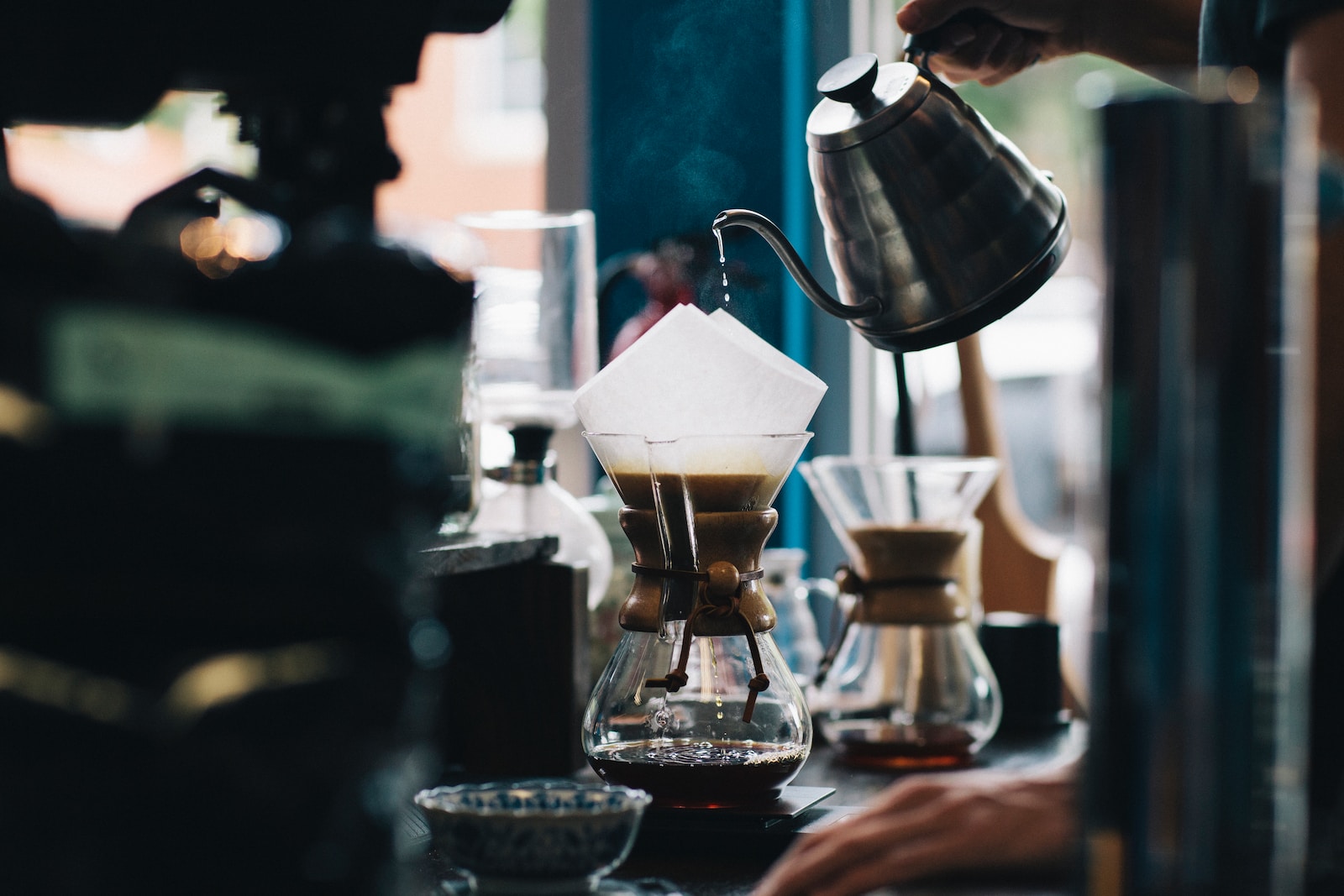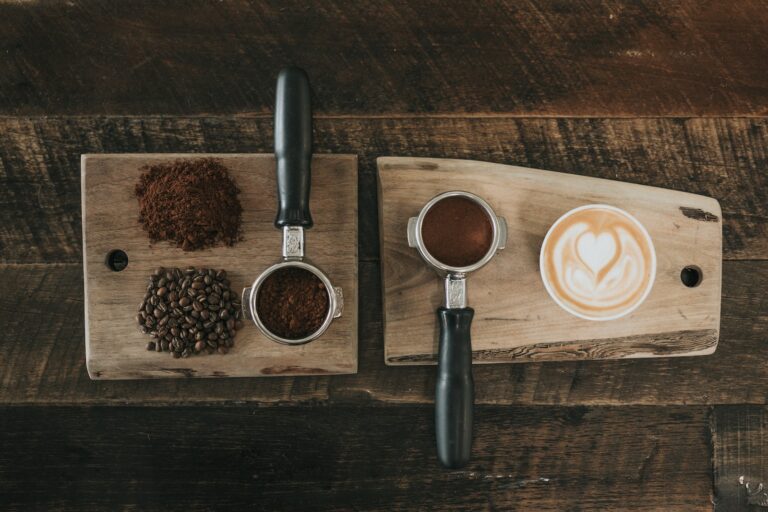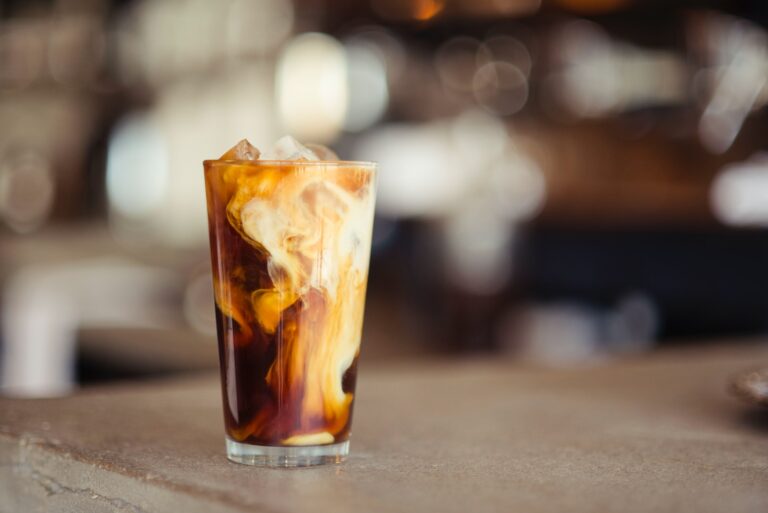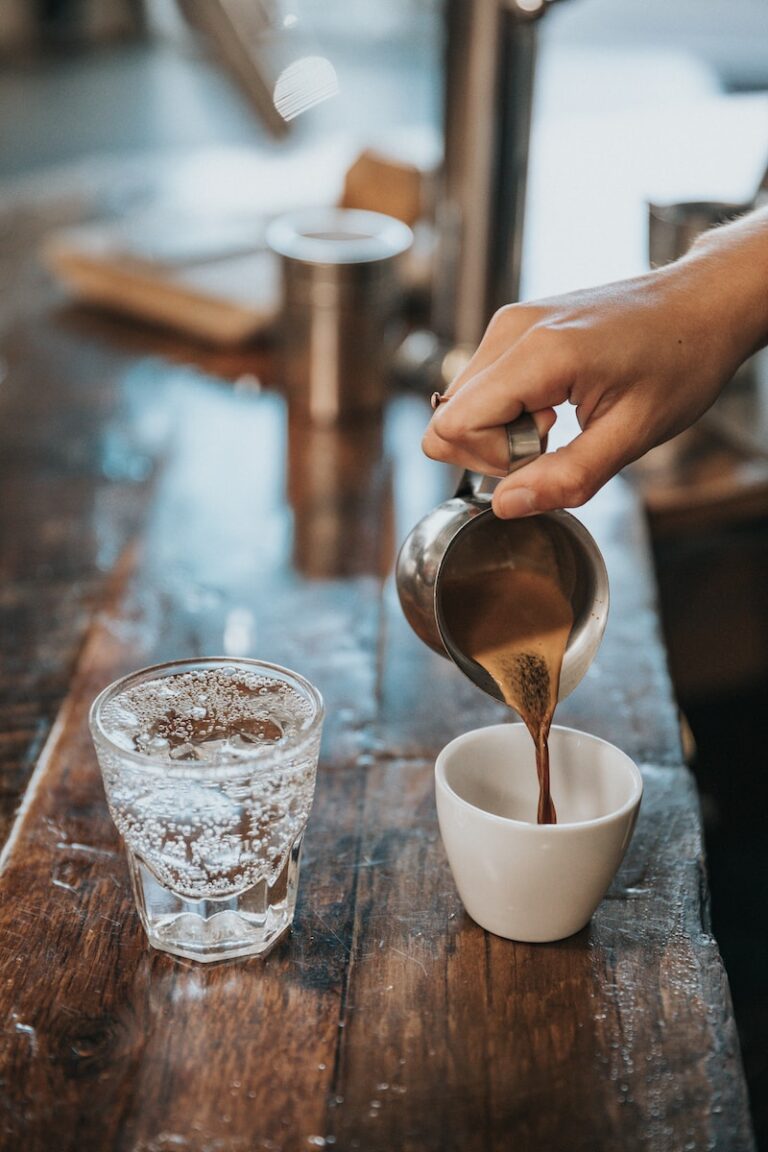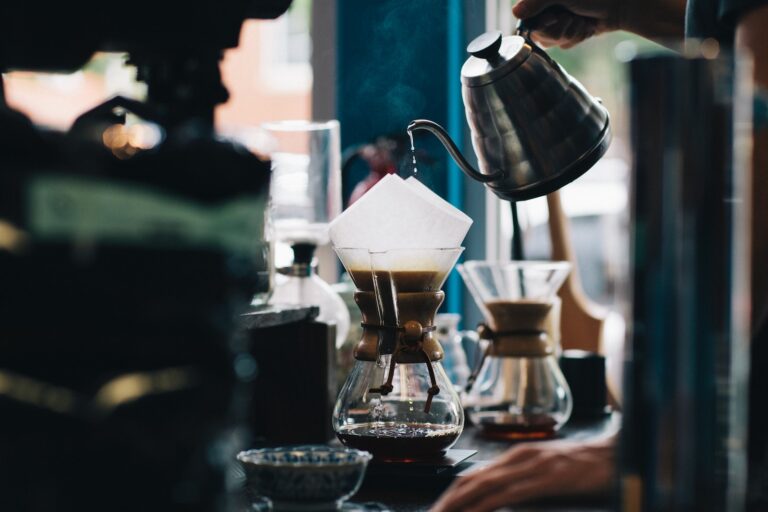Are you a coffee lover who craves that perfect cup of joe? Well, get ready to dive into the fascinating world of brewing coffee, where we will uncover the secret ingredient that can make or break your caffeine fix: water quality. Sure, we meticulously select our beans and master the brewing techniques, but have you ever stopped to consider how much impact water quality has on the overall flavor and aroma of your beloved beverage?
Join us as we explore why water quality is not just another drop in the brewing process but an essential element that elevates your morning ritual to a whole new level. Get ready for an eye-opening journey that will forever change the way you appreciate every sip of your favorite brew!
Introduction to the topic of water quality in coffee brewing
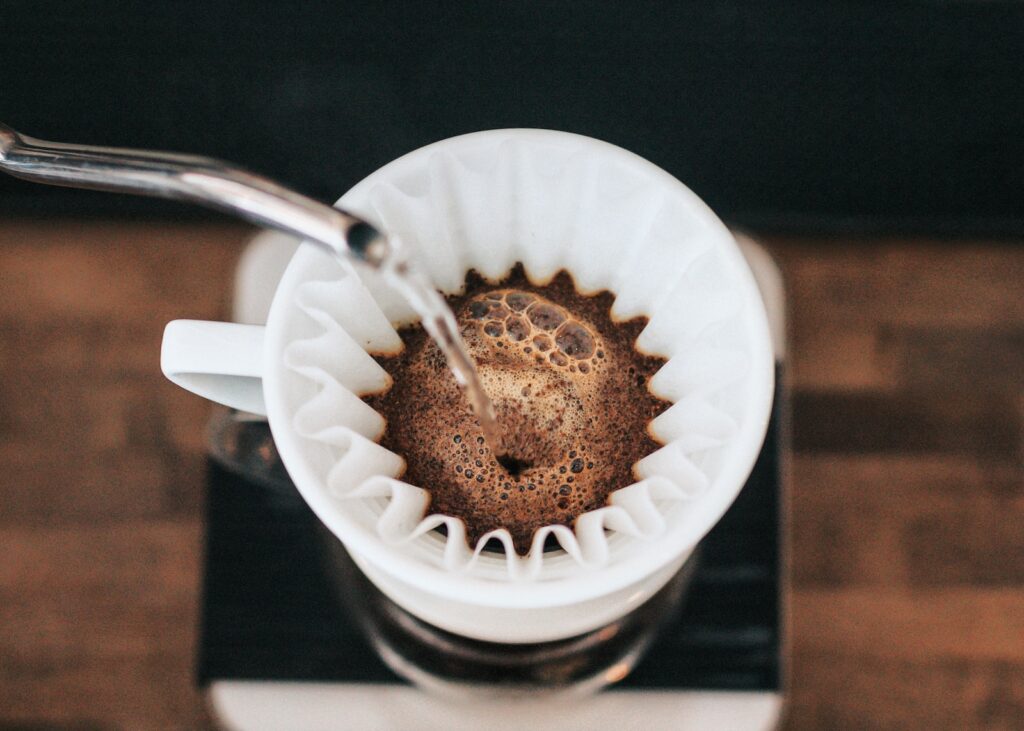
Coffee is one of the most beloved beverages in the world, with millions of people starting their day with a hot cup of freshly brewed coffee. While we often pay attention to factors like bean quality, grind size, and brew methods, there is one crucial element that often goes unnoticed – water quality.
Water makes up 98% of a cup of coffee, so it’s not difficult to understand why it has such a significant impact on the taste and overall quality of your brew. In fact, water quality can make or break your coffee experience. But what exactly is water quality? And how does it affect our beloved cup of joe?
Simply put, water quality refers to the chemical composition and physical properties of water that determine its suitability for a specific purpose. In this case, we are looking at its suitability for brewing coffee. Water from different sources will have different levels of minerals and impurities, which can greatly influence the flavor and aroma in our daily dose of caffeine.
The basics of water composition and why it matters in coffee brewing
Water is the most essential element in coffee brewing, making up around 98% of each cup. Therefore, understanding the basics of water composition and its impact on the quality and taste of your coffee is crucial.
Composition of Water:
Water is made up of two main elements – hydrogen and oxygen. It also contains a small amount of dissolved minerals and gases that greatly influence its properties, such as flavor, pH level, and hardness.
Minerals:
The minerals present in water are naturally occurring substances found in rocks and soil. When water flows over or through these materials, it picks up some mineral particles along the way. The most common minerals found in drinking water that affect coffee brewing are calcium, magnesium, sodium, potassium, and bicarbonate.
pH Level:
The pH level measures how acidic or alkaline a substance is on a scale from 0 to 14. Pure water has a neutral pH of 7 – neither acidic nor alkaline. However, impurities like minerals can make it more acidic or alkaline. The ideal range for brewing coffee is between 6.5-7.5 pH levels.
Hardness:
Hardness refers to the amount of dissolved calcium and magnesium ions present in your water. These minerals make the water “hard,” while their absence leads to “soft” water. Hardness can be measured by parts per million (ppm) or grains per gallon (gpg). Water with high hardness levels (above 150 ppm or gpg) can negatively impact the taste and aroma of coffee.
Why Water Composition Matters in Coffee Brewing
1] Flavor:The minerals in water play a significant role in extracting the flavors from coffee beans during the brewing process. For example, magnesium and bicarbonate ions enhance the sweetness of coffee, while sodium ions can make it taste slightly bitter.
2] Extraction:
Water hardness affects how efficiently coffee is extracted during brewing. Hard water can slow down extraction, resulting in under-extracted, weak-tasting coffee. On the other hand, soft water can over-extract and produce bitter, unbalanced coffee.
3] Equipment Maintenance:
If your tap water is high in minerals, it can cause build-up and clogging in your coffee equipment over time. This build-up can affect its performance and shorten its lifespan.
4] Consistency:
Using consistent water composition is essential for achieving consistent tasting coffee. If you use different types of water with varying mineral content each time you brew, the flavor profile of your coffee will also differ.
The role of minerals in water for optimal coffee extraction
Minerals play an important role in both the taste and extraction of coffee. When brewing coffee, water is not just a neutral medium, but instead contains minerals that can greatly affect the flavor and overall quality of the final cup. While many factors contribute to a good cup of coffee, understanding the role of minerals in water is crucial for achieving optimal extraction and creating a delicious brew.
Firstly, let’s define what we mean by “minerals” in water. Minerals are naturally occurring substances found in almost all sources of water. They come from dissolved rocks and soils that filter into underground aquifers or streams, making their way into our daily drinking water. Some common minerals found in tap water include calcium, magnesium, potassium, and sodium.
One essential function of minerals in brewing coffee is their ability to extract flavor compounds from the beans. A high concentration of minerals provides distinct taste characteristics that enhance the flavors of coffee and create a more balanced cup. This phenomenon is known as “hard” water – which simply means that it contains higher levels of minerals compared to “soft” water.
The type and amount of minerals present in water can vary significantly depending on its source and treatment process. For example, groundwater tends to have higher mineral content than surface waters like lakes or rivers due to increased exposure time with rocks containing these elements. Additionally, municipal treatment plants often add minerals back into softened or filtered tap water to improve its taste.
Common water issues and how to address them for better coffee
Water quality is a crucial factor in brewing the perfect cup of coffee. The water used to make your morning brew can significantly impact the taste, aroma, and overall quality of your coffee. However, not all water is created equal, and there are common water issues that can affect your brew. In this section, we will discuss some of the most common water issues and provide tips on how to address them for better coffee.
1] Hard Water:
One of the most prevalent issues with tap water is hardness caused by high levels of mineral content such as calcium and magnesium. Hard water creates a film on your coffee equipment, leading to clogs and affecting the flavor of your brew. It also prevents proper extraction of flavors from your coffee grounds, resulting in a flat and dull-tasting cup.
To address hard water, you can use filtered or distilled water instead. Another option is to install a water softening system at home or use descaling products regularly to remove mineral buildup from your equipment.
2] Chlorine and Chemicals:
Tap water often contains chlorine and other chemicals used to treat it for safe consumption. These chemicals can have a significant impact on the taste of your coffee by leaving behind a chemical aftertaste or altering its natural flavors.
The best way to address this issue is by using filtered or bottled spring water that has been treated without chlorine or other harsh chemicals. You can also leave tap water out overnight before brewing to let any residual chlorine dissipate.
Best practices for using and maintaining a water filtration system for brewing coffee
Having a high quality water filtration system is essential for brewing the perfect cup of coffee. Not only does it improve the taste and aroma of your coffee, but it also helps to extend the lifespan of your coffee brewing equipment. In this section, we will discuss some best practices for using and maintaining a water filtration system specifically for brewing coffee.
1] Choose the Right Water Filtration System: There are various types of water filtration systems available in the market such as reverse osmosis filters, charcoal filters, and ion exchange filters. However, not all are suitable for brewing coffee. It is important to choose a filter that is specifically designed for removing impurities like chlorine, sediment, heavy metals, and other contaminants that can affect the taste of your coffee.
2] Replace Filters Regularly: Depending on the type of filter you have chosen, it is recommended to replace them every 3-6 months or after filtering a certain amount of water. This ensures that your filter is functioning effectively in removing impurities from your water.
3] Rinse Your Filter Before Use: Before using your filter after replacing or cleaning it, make sure to rinse it thoroughly with cold water. This helps to remove any loose particles or debris that may have accumulated in the filter.
4] Clean Your Filter System Properly: It’s important to clean and maintain your entire filtration system regularly as well. This includes cleaning any removable parts like cartridges or reservoirs with warm soapy water at least once a month.
DIY solutions for improving water quality at home
Water is a vital component of brewing coffee, as it not only affects the taste and aroma of your favorite drink, but also impacts your health. Therefore, it is crucial to ensure that the water used for brewing coffee is of excellent quality. While there are many commercial solutions available for improving water quality, there are also several affordable and easy DIY options that can be implemented at home.
1] Boiling Water: Boiling water is one of the simplest and most effective ways to improve its quality. It kills harmful bacteria and removes impurities such as chlorine, making it safe for drinking and brewing coffee. All you need to do is bring the water to a rolling boil for about 3-5 minutes before using it in your coffee maker.
2] Filtering with Charcoal: Activated charcoal has been proven to be highly effective in removing impurities from water. You can easily make a filter at home by cutting open a plastic bottle, filling it with activated charcoal granules or crushed up charcoal briquettes, and placing a layer of cotton or cheesecloth on top. Simply pour the water through this improvised filter before using it in your coffee brewer.
3] Using Citrus Fruits: Adding lemon or orange slices to your filtered tap water not only adds flavor but also helps improve its quality. Citrus fruits contain natural acids that not only help neutralize alkalinity but also have anti-bacterial properties.
Conclusion
As coffee enthusiasts, we cannot ignore the significance of water quality in brewing a perfect cup. Investing in high-quality filtered water or using specialized devices can drastically improve the taste and consistency of our coffee. By paying attention to the water we use, we can truly appreciate all the flavors and nuances that make each cup unique. Let us remember that when it comes to great coffee, every drop counts!

